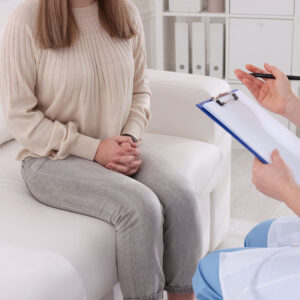Why an STI test?
Most STIs are easy to treat if they are found in time. STI’s can give symptoms like warts, blisters, pain when peeing, or discharge that is more than usual or looks different. But you can also have an STI without any symptoms. An STI test is the only way you’ll know for sure whether you have an STI or HIV. Get tested if you’re in any doubt.

When should you get tested?
- You had unsafe sex. This means sex without a condom.
- A condom tore or came off during sex.
- You’ve been warned by a partner or your ex who has an STI.
- You’re experiencing symptoms like warts, blisters, pain when peeing, or discharge that is more than usual or looks different.
- You are in a long-term relationship and want to have sex without condoms.
- If you are pregnant, you will undergo a routine STI test.
Why get tested?
- If you have an STI, you can transmit it to others.
- If you have an STI that goes untreated, there could be serious health effects, like difficulty getting pregnant in the future.
- Most STIs are easy to treat.
- If you have an STI, there is a greater risk of getting other STIs or HIV.
- Often STIs do not produce symptoms, the only way to know is by testing.
Men with other men
Are you a man who has sex with men? It is recommended you get tested for STIs and HIV every six months. STIs and HIV are more common among gay and bisexual men.
When is the test reliable?
It takes a while before an STI can be detected. To be certain the test results are reliable, it’s best to wait for a while.
How Long?
- Chlamydia and gonorrhea, wait at least two weeks after sexual contact.
- HIV, syphilis, and hepatitis B, wait at least six weeks after sexual contact. But if you think there is a high risk that you got HIV or hepatitis B, it’s best to contact Saba Cares as soon as possible to see if you need preventive treatment.
Symptoms of an STI can be warts, blisters, pain when peeing, or discharge that is more than usual or looks different. If you experience any of these make an appointment with a doctor immediately.
When should you see a doctor immediately?
Go to your doctor straight away if you have been raped. You can contact the emergency department of Saba Cares on +599.416.3288
- They’ll talk to you about various options, such as PEP, hepatitis B vaccination and the morning after pill. PEP is treatment that involves taking antiretroviral HIV drugs for a month to prevent HIV infection.

